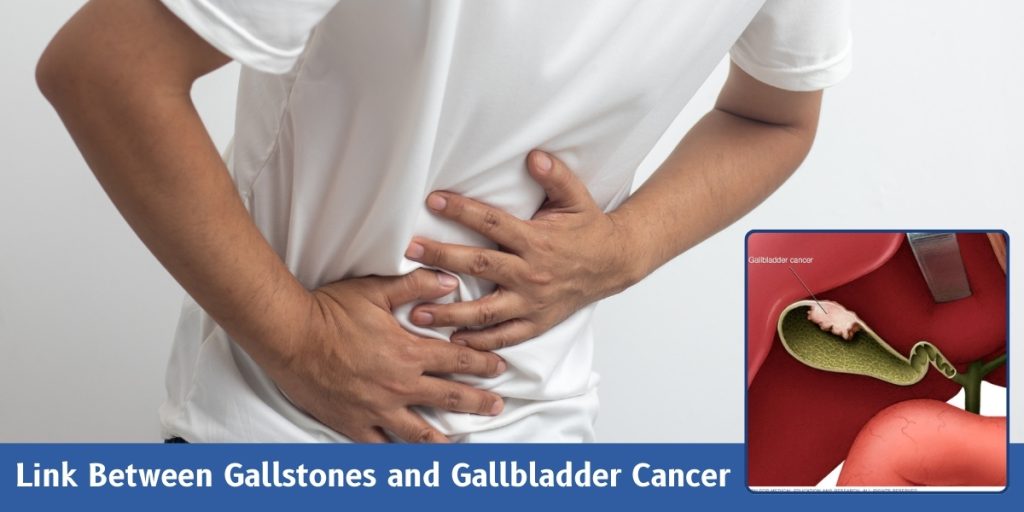Association of Gallstone with Gallbladder Cancer
Every year, around 1.5 million people in India are diagnosed with gallbladder stones. Though gallstones are very common and can usually be treated through medications or surgery, there’s one complication that many people are unaware of: Having gallstones increases your risk of developing gallbladder cancer. The chances are low, but it is still a risk worth considering.
Gallstones can sometimes lead to more serious conditions, such as gallbladder cancer, which is why it’s important to get them treated on time. If you or someone you know needs Gall bladder stone treatment in Hyderabad, consult Dr. K V Dinesh Reddy. One of the well-known experts who provides top-quality care to manage gallstones and help prevent complications.
Let’s dive deeper and understand what is the association of gallstones with gallbladder cancer, and how early treatment can help.
What Are Gallstones?
Gallstones are hard, pebble-like pieces that develop in your gallbladder due to the hardening of cholesterol or other substances found in bile (a fluid that helps digest your food). The term “gall” refers to bile, so gallstones are essentially bile stones.
Your gallbladder acts as a storage sac for bile, which is produced by your liver and carried through the bile ducts to different organs in your biliary tract. These stones can range from the size of a grain of sand to as big as a golf ball! There can be one large gallstone, hundreds of tiny stones, or both small and large stones.
Most people don’t even know they have gallstones because they don’t always cause problems. But when they block the bile flow they can cause symptoms like severe pain in the upper-right side of the stomach, nausea, or vomiting. If the blockage lasts a long time or is severe you might develop other symptoms like fever, fast heartbeat, sweating, swelling and tenderness in your abdomen, yellowing of the eyes and skin, dark urine and pale stools.
If these symptoms continue and are left untreated, gallstones can lead to inflammation and increase the risk of bacterial infections. In severe cases, these conditions can become life-threatening and cause complications like cholecystitis (inflammation of the gallbladder), pancreatitis (inflammation of the pancreas), cholangitis (inflammation of the bile ducts), hepatitis (inflammation of the liver), jaundice (when bile enters the bloodstream), and septicemia (a bloodstream infection).
Over time, chronic inflammation from untreated gallstones can also increase the risk of developing gallbladder cancer, a rare but serious complication. Thus, consult Dr. K V Dinesh Reddy, a renowned gastroenterologist, for Gall Bladder Stone treatment in Hyderabad.
How Gallstones Are Connected to Gallbladder Cancer?
It’s not clear what causes cells in the gallbladder to become cancer cells. But scientists have identified several factors that may increase your risk and one of the most common risk factors for gallbladder cancer is gallstones. Around 4 out of 5 people diagnosed with gallbladder cancer are found to have gallstones.
When gallstones stay in the gallbladder for a long time, they can cause constant irritation and inflammation. This can damage the gallbladder’s walls, making the healthy cells become malignant.
Studies have shown that people with gallstones are more likely to develop gallbladder cancer compared to those without gallstones. The larger and more numerous the gallstones, the higher the risk. Gallstones measuring 2.0 to 2.9 cm are about 2.4 times as likely to cause cancer than stones smaller than 1 cm. For gallstones 3 cm or bigger, the risk increases tenfold.
This is why early Gall bladder stone treatment in Hyderabad is so important.
Other who have a high chance of developing gallbladder cancer include:
- People over the age of 65.
- Women, especially those who have had multiple pregnancies.
- Individuals who are obese or have certain medical conditions like diabetes.
- Those with a family history of gallbladder disease or gallbladder cancer.
What Are the Symptoms of Gallbladder Cancer?
Gallbladder cancer can be challenging to detect early because it often doesn’t cause noticeable symptoms in its early stages. When symptoms do appear, they are similar to those of more common conditions like gallstones or bile duct blockages.
Common symptoms include:
- Pain in the upper abdomen
- Yellowing of the skin and eyes
- Lumps or swelling in the abdomen
- Unexplained weight loss
- Nausea and vomiting
- Bloating
- Fever
If you notice these symptoms, especially if they keep recurring, don’t ignore them. When detected early on treatment is easier and more effective. For expert care in Gallbladder Stones Treatment in Hyderabad, consult Dr. K V Dinesh Reddy.
How to Prevent Your Chances of Gallbladder Cancer?
First things first is to maintain a healthy weight because Obesity or being overweight is a major risk factor for gallbladder cancer. Extra weight not only increases your chances of developing gallstones but also triggers inflammation in your gallbladder, which may eventually lead to cancer.
So, adopting a healthy lifestyle is your best defence. Focus on eating a balanced diet rich in fruits, vegetables, fibre and whole grains. Combine that with regular physical activity, like walking, jogging, or even swimming, to help keep your weight in check.
Next is to be regular with your screenings. Whether you’ve had a small gallstone or had your gallbladder removed, it doesn’t mean you’re completely out of the woods. Even after a gallbladder removal, there is a small risk of developing gallbladder cancer. This is because cancer can sometimes develop in the bile ducts that remain. If you had gallstones, especially large ones, or gallbladder disease before your surgery, the risk may be slightly higher.
So, don’t wait until something feels wrong. Consult Dr. K V Dinesh Reddy, one of the best gastroenterologists for Gallbladder stones treatment in Hyderabad. Consistent screenings can catch potential issues early and save you from bigger problems down the road.


